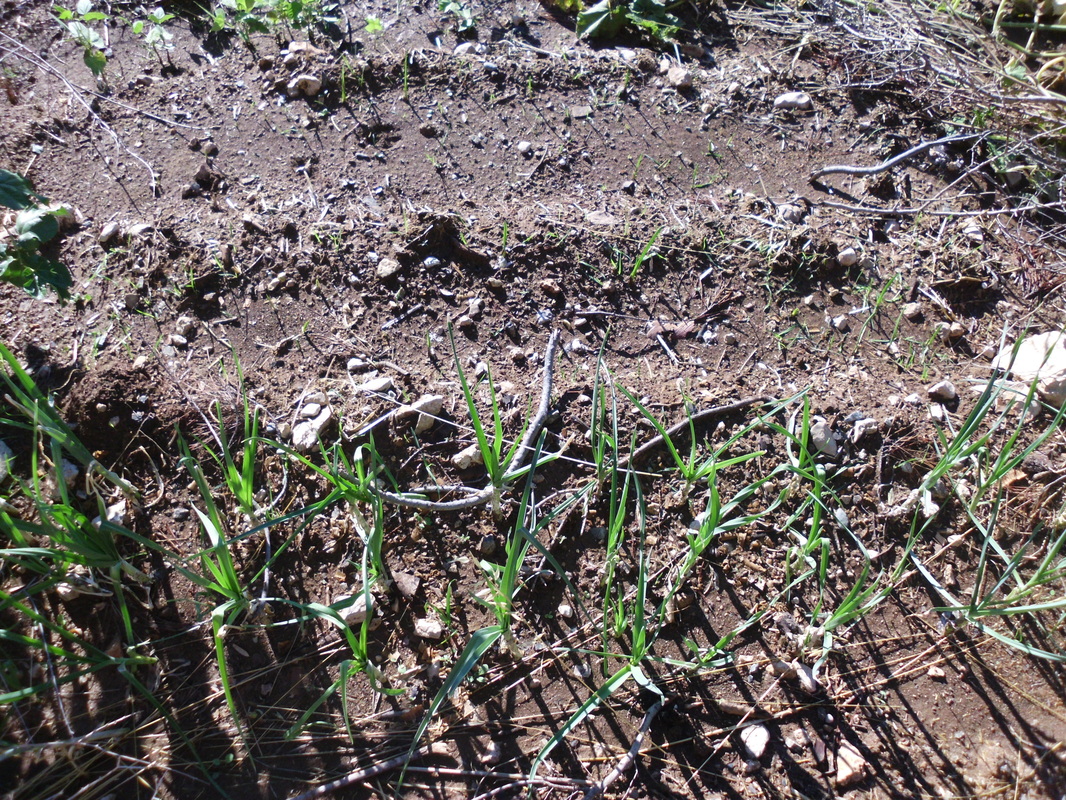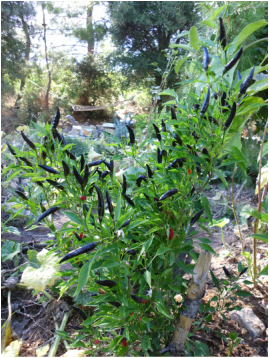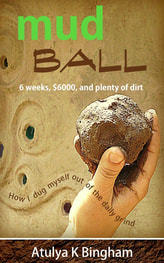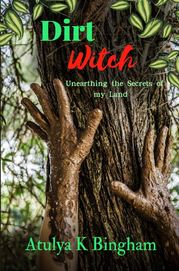How to make a small , successful veggie patch without killing yourself, your soil or your eco-system.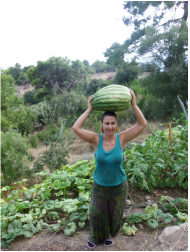
What you need: A smattering of permaculture knowledge, a local, and witchcraft.
I had no more idea about gardening than I did earthbag construction. The only thing I did know was that I wanted vegetables, and I wanted them to be clean and pesticide-free. Experienced gardeners and 'Permies' may find nothing new here. But for those, like me, who didn't know a runner bean from a chick pea, it's useful to have an ABC of how to tackle a patch. And it is so rewarding. I can't tell you the joy of plucking your own aubergines for a moussaka, or severing a dew-speckled pepper from the stem. And the taste . . . Let's just say, once you've eaten from your own organic garden, you will realise just what an abomination any supermarket's grocery section really is. 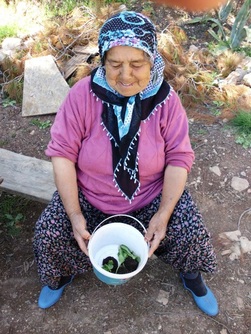 The great Guru of Green herself, Dudu. The great Guru of Green herself, Dudu.
THE LOCAL
I'm lucky. The Turkish hills are spattered with rural folk shouldering years of agricultural experience. I owe my veggie patch almost entirely to my neighbour Dudu. She's often to be found wandering over my land pulling odd looking beans out of her pockets and sprinkling them like fairy dust over the earth. In all honesty, if it wasn't for Dudu things would be fairly desperate. She has taught me how to harvest seeds, germinate them, when to plant what, where to plant it, and how much water to give. And at nearly 70, she's still faster than me with the hoe. 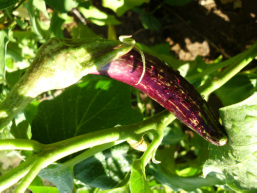
THE APPROACH
The only downside of local advice is the insistence on artificial fertilizers or pesticides. I've never taken a Permaculture Design Course, though I am au fait with a few of the basic principals (which anyone can find out online). Here, I have concocted an organic fusion dish combining Dudu's advice, a dash of permaculture, and ladles of intuition. 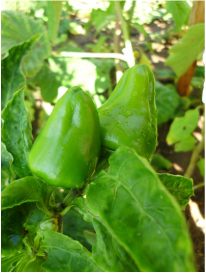
THE RULES
There are five things you NEED to do to your veg. If you don't, expect failure. 1. Water them (how much depends on your soil). 2. Fertilize them. 3. De-bug them. 4. Give them the right light. 5. Give them plenty of lurve. (Serading them under the moonlight, playing Dvorak's Cello Concerto, or smiling at them, all count). Natural Compost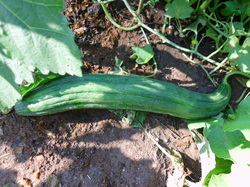
Don't get me started on this again! Yes, you can use your own compost from your composting toilet, especially if it has had time to degrade (six months to a year
recommended). It's a fantastic and safe fertilizer. Even the Turkish ministry of health has backed me up here, and now recommend the composting toilet as the cleanest way to dispose of your crap in rural areas (though Dudu is still having none of it). There is an additional benefit for hardcore mystics. Apparently, when you use your own compost, your plants develop specifically for your health. I can't vouch for that, but they definitely taste darn yummy. Other natural fertilizers include: 1. Chicken, goat, sheep droppings, horse or cow manure. 2. The result of your compost heap from your organic waste. 3. Plants such as beans, peas and chickpeas which help nourish the soil. Plant them around your garden or your trees. Natural Pesticides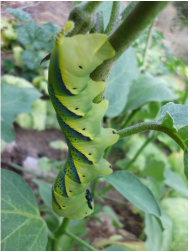 The death hawk moth caterpillar. The death hawk moth caterpillar.
There's no one remedy as each beastie has it's own pet-hate, but here's a list of possible pesticides, plus a decent site or two. Everyone agrees, dispersing herbs and flowers into your veg patch, and mixing up your crops will go a long way to deter pests. Onions get rid of mites for example, so if onions are interspersed with the rest of your patch, that's one pest down.
1. Praying mantis, toads and lady bugs are super pest predators. Cultivate these lovelies in your patch anyway you can. 2. Cayenne pepper, ivory soap, and baking soda all seem to be useful for doing away with pests. Make solutions out of them, see the Natural Garden Pest Control site for lots of super detailed information on this. 3. Mint, rosemary, marigolds, geraniums, coriander, thyme, sage, and hemp (good luck with that one, depending on where you live) are all pest-repellents. For the ultimate list check good old wiki pest repellent plants. 3. Hand-pick bugs off plants and squish them, or, as one indefatigable fellow suggests, introduce some child-labour into your garden and pay your kids to do it for you:) see the video Organic Vegetable Garden Pest Control. 4. Get in touch with your inner warlock and start casting spells (see my "Example of When Only Intuition Works", next column). |
Ten Tips for the Would-be Natural Gardener.1. Know your sun. Where does it rise? Where does it set? Most veg like morning sun, and lots of it. Veg I planted at the front of my house thrived. The veg at the back nearly all failed.
2. Know your seasons. Which plant goes in when? Only Dudu could help me here. Every country will have different rules for this. On the South coast of Turkey we have two main planting seasons, October and March/April. But honestly, it seems every month something else goes in. 3. Make small terraces for your veg, and plant in patches rather than rows. The terraces hold the water far better. Long rows are a pain to water. 4. Intersperse your veg with herbs and flowers a la permaculture. These feed your sprouts, attract bees, and divert or repel bugs. 5. Don't establish a one crop field. It's a recipe for disaster. Your soil is depleted quickly, and if that particular plant suffers, you have nothing to fall back on. Grow a large variety of plants, each helping the other. Create an ecosystem that supports itself. 6. Don't get rid of all the weeds (as most traditional gardeners wiIl have you believe). Again some protect the plants, give them vital shade or nutrients, or have berries and leaves that pests eat instead of your plants. Just cut them back to stop them throttling your plants. I witnessed this first hand with my mulberry tree. The fruit were untouched, yet my land is full of birds. They are all eating the wild berries instead. 7. Don't go too big in the beginning. It's just like building, you'll get exhausted. Let your plots grow organically, year by year, each terrace supporting the next. 8. Make sure when you plant, you think about how you're going to harvest your crop. Leave space to walk between patches. 9. Keep the seeds from your last harvest somewhere dry. Beans and peas go straight in the ground. Other seeds; basil, peppers, tomatoes etc. need to go in small pots until they sprout. 10. Know your land and connect with it, not with your mind, but with your feelings (don't be afraid, reach in there, you know you can do it). Touch your earth, smell it, love it. I can't tell you how many times I've done exactly the right thing at the right time ONLY from intuition. (See below). An Example of When Only Intuition Works.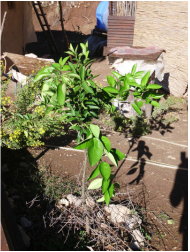 The now-recovered orange tree. The now-recovered orange tree.
You can scour the internet until your eyes turn square, do a PDC, read an entire library of books on the subject, but experience has taught me that there will always be situations that are unique, that no one else has ever had. And that is why we were born with minds of our own. Personally, I swear by an amalgamation of logic, intuition and a good old hex every now and again.
This summer, one of my baby orange trees was taking a beating by crickets. The poor little branches were ripped bare by these voracious little knee-graters, leaves left chewed to the veins. I wondered how to save it. 'You need to kill 'em!' crowed Dudu, who was leaning over the fence, brandishing the pesticide sprayer with intent. I managed to fend her off and turned to the internet instead. Yet, all I could find were substances I didn't have, plus an alarming observation in one blog that there's no simple answer for the grasshopper family. What works for one, doesn't for another. I was on my own. So one night, I went to talk to the orange tree. It's spindly branches shuddered in the pitch. It stood there forlornly, like a nun without her clothes on. I patted one of its bald arms sympathetically. Then I had a flash of inspiration. The answer was here on my land, I was sure. I could smell it in the warm, night air, it was calling to me from the other side of the house. I trotted over to my veggie patch at the front, and studied my clusters of aubergine plants and courgettes. As I flashed a torch over the lush, bowing leaves, I wondered why my veggies were not being eaten. It was then that two plants poked their heads out of the greenery, as if to say, 'Ahem'. Rosemary and Lavender. Hmm. Neither of these two were ever eaten by anything, and nor were their neighbours. Aha! It was then that I felt a spot of sorcery coming on. I quickly cut off a couple of branches of both herbs, grabbed a pot of water and boiled them all up. I nearly cackled too, but a flashback from the sixteenth century stopped me in my tracks. Then I waited for the potion to cool. When it had, I poured it into a water sprayer and headed for my baby orange tree. The upshot of this tale is that it worked. The crickets must have hated the smell of lavender and rosemary, and left to chew on some other leaf instead. My orange tree now has her clothes on again, and waves her green arms at me every morning. |

